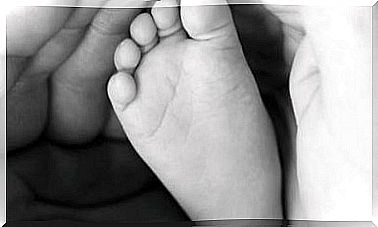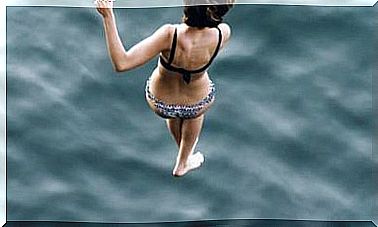Being Your Best Version Without Betraying Yourself, Is It Possible?
If we stop comparing ourselves to the ideal person we want to be, frustration and anger will transform into acceptance of who we are and the pleasure of improving.

Certain questions seem unavoidable: How is the best person I can be? What is the role model? What should I change in my way of being? Even accepting this challenge as an obligation, how will I get to be that person, the best?
How should it be?
The great temptation is to turn to our idealized inner self. That “I” that we have been taught as correct, as effective, as lovable, as acceptable, as desirable, as sociable and as a prelude to foreseeable success ( although that success is the model of those who teach and not their own).
We all know, more or less, how “we should be”. We remember him in the most loving words of our mother, in the severest scolding of our father, in the critical gaze of our teacher and in the rewarding embrace of our loved ones every time we succeed in doing what everyone wanted us to do …
Personally, I know that I should be less obsessive, that I should work less, that I should dedicate more time to physical activity, that I should talk less, that I should stay more still, that I should be less gullible, that I should stay longer. every place, that I shouldn’t be so irritated by injustice, that I shouldn’t take some risks anymore … I know, of course I know.
But I also know – a little more every day – that I am not as I should be; that I am who I am, closer or further than I should be, but I am who I am. Just as you are who you are.
Giving up the “ideal self”
For better and for worse, we are who we are. We are not the ones that some would have wanted, those that others needed, those that many expected and those that most would have applauded. We are not, no matter how much it may weigh us, those who were in another time and, as is logical, we do not become, at least not yet, who we will be in the future. We are, I repeat, who we are.
This I, which I am going to call the “real me” to differentiate it from that other idealized self, is full of defects and excesses, which become evident when compared to that one, and which, naturally, from the outset connect me with my own demands and they open the door of my familiar internal dialogues:
“Why not take care of being as I should?”
“Isn’t that the way to be the best me I can be?”
“Why not try a little bit?”
“The effort may not be pleasant, but the end justifies the means.”
“If I occupy myself for a while to change what I must change, later I will enjoy the pleasure of having achieved my goal.”
“After all, I know, as has been said many times, that I am potentially capable of doing everything I set my mind to …”
The answer is impossible because the problem is at the very origin of the questions. The comparison between the real self and the ideal self will always generate an awareness of deficit and a dissatisfaction with who I really am. The first escape from that uncomfortable feeling will be to ask, impose and demand the effort of transforming myself into what I should be and what I am not.
Should we strive to be different?
It is an effort doomed to failure, of course, because no one can stop being who they are, much less be authentically who one is not. A behavior intimately defended by those who believe that effort is the only thing that gives value to achievements, and backed by thousands of years of imposing on others and on oneself to resemble predetermined models of how it is right and how it is wrong to be.
If we do without that ideal self, the dissatisfaction of ‘not being like’ will disappear, the recriminations and the effort of trying to be different will end.
A path that leads to chronic frustration logic, permanent self-reproach and the strenuous effort of those who always swim against the tide because someone has taught them that it is the only way in which it is worth moving forward. Permanent frustration, dissatisfaction with oneself and contempt for one’s life, permanent self-demand and devaluation of every little achievement… do you recognize the symptoms?
Consequences of perfectionism: low self-esteem
They are usually called “low self-esteem”; technically, ” egodistonia “; psychologically, “neurotic effort to try to resemble what, I was told, I must be if I was to be loved.”
Unfortunately, the pathology does not end there, because one of the consequences of low self-esteem is, by force, the deterioration of the image that one has of oneself, with which the distance that separates me from what I should be becomes each increasing, increasing the demand, dissatisfaction, effort … and the vicious circle closes.
A vicious cycle is a dead end. The Argentine comedian Landrú, whom I always quote, gave us the solution with his brilliant phrase: “When you realize that you are at a dead end, don’t despair. Exit the way you entered! ”.
If we follow this wise advice, we should get out of that sinister circuit through which we enter, that is, by the construction, acceptance and veneration of an ideal self. What if we did without it? In the first place, that other imaginary self with which to compare myself would disappear, the dissatisfaction of “not being like” would disappear, it would end with my recrimination and contempt for what I am not and with it the effort of trying to be different. All the frustration and anger would immediately transform into acceptance of who I am and the pleasure of learning, not to look like an ideal image, but for the mere pleasure of knowing and knowing more.
We are better when we try less
The paradox is always surprising. When I stop wanting to be better, I start to be better and better and, without intending it, I end up again and again reaching further from the place I wanted to go, without having made an effort to do so. With the sole expense of putting my heart at the service of growing, loving and learning.
I will then understand the ultimate and creative meaning of this being better every day. I will understand that my only reference is myself, and that the sense of comparison is never with the outside, with others, with others.
My only reference is myself, not others. Therefore, being a better person every day means being better today than you were yesterday, without idealized goals.
No idealized goal, no reference that is not what I was and am capable of doing, no claim that is not to be a better myself every day.
Your best version is already in you
For many years George Gershwin, author of the famous Rhapsody in Blue, perhaps the greatest musician and composer in the United States, worked as a pianist in small-time venues. Sometimes with minimal recognition, sometimes with outright contempt for what he did, in many ways ahead of his time.
Finally, recognition came and Gershwin began to be valued and applauded. An acknowledgment that soon turned into a good amount of money in his bank account. By his own account, Gershwin kept careful control of his income.
All his life he had planned to cross the Atlantic to study, if only for a few months, with his most admired teacher: the French composer Maurice Ravel. Finally, the numbers on his balance let him know that, at last, his dream had a chance of coming true. George Gershwin canceled his concerts and sailed for Europe. Once he arrived in France, after moving contacts and ties, he managed to meet Maurice Ravel.
“Master,” she addressed him, literally kissing his hands, “my name is George Gershwin.” I come from the United States to ask you to give me even a couple of classes… Please, Master.
-Why? Ravel asked.
“Because I admire you, Master,” said the young man. All my life I have dreamed of being like you.
” What a silly idea, ” said the French musician. Why would settle Ravel be a mediocre, if you can become an excellent George Gershwin!
Now close your eyes and ask yourself: Why do you want to be mediocre “as you should be” if you can be an excellent yourself?









